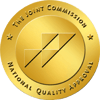Living with alcohol intolerance can bring unexpected challenges. This is especially true when you want to enjoy social events or relax with a drink. It can be hard to see the signs. However, knowing what to look for helps. Managing the symptoms can make a big difference.
- Home
- >
- The Estate News & Blog
Alcohol Intolerance: Symptoms, Causes & Treatment
Topics: Addiction, Treatment, Substance Abuse, Alcoholism, Luxury Treatment
Dialectical Behavior Therapy For Addiction Treatment
Dialectical Behavior Therapy (DBT) is a type of behavioral therapy developed to help manage intense emotions and improve their quality of life.
Originally designed for individuals with borderline personality disorder, DBT has since been adapted to treat various mental health conditions, including alcohol addiction, depression, and anxiety. This therapy combines cognitive-behavioral techniques with mindfulness strategies to help regulate emotions, improve relationships, and develop distress tolerance.
Questions Answered:
- What is Dialectical Behavior Therapy (DBT)?
- How Does Dialectical Behavior Therapy Work?
- How to Find DBT Treatment Near You?
What is Dialectical Behavior Therapy (DBT)?
Dialectical Behavior Therapy (DBT) is a structured, evidence-based approach that helps people struggling with emotional dysregulation, self-destructive behaviors, and suicidal behavior.
It was developed by Dr. Marsha Linehan, a psychology researcher from the University of Washington, and primarily aimed at treating patients with borderline personality disorder (BPD) and other emotional regulation issues. DBT is based on two primary principles:
- Dialectics: This concept emphasizes the balance between acceptance and change. Patients learn that two seemingly opposing truths can coexist, reducing black-and-white thinking.
- The Biosocial Theory: This theory suggests that emotional dysregulation arises from a combination of biological predisposition and an invalidating environment.
DBT combines cognitive-behavioral techniques with mindfulness practices to help patients manage intense emotions, improve interpersonal relationships, and reduce self-destructive behaviors.
It also focuses on balancing acceptance and change, empowering people to manage negative thought patterns and improve their overall well-being.
DBT is commonly used in addiction treatment programs, as it helps patients cope with cravings, impulsivity, and emotional triggers. It is also highly effective in treating borderline personality disorder, post-traumatic stress disorder (PTSD), and other mental health conditions.
You don’t have to fight this battle alone.
Take the first step toward healing today.
Four Main Skill Concepts of DBT
Dialectical Behavior Therapy (DBT) is structured around four main concepts that form the foundation of its therapeutic approach. These skill concepts are taught to help manage their emotions, improve relationships, and develop effective coping strategies.
Mindfulness
This concept emphasizes being fully present in the moment and aware of one’s thoughts, feelings, and surroundings without judgment. Mindfulness skills help observe their experiences and emotions, which can lead to better emotional regulation and reduced impulsivity.
Distress Tolerance
This involves developing skills to cope with distressing situations without resorting to harmful behaviors. Techniques such as self-soothing, distraction, and radical acceptance are taught to help navigate difficult emotions and build resilience.
Emotion Regulation
This concept focuses on understanding and managing intense emotions effectively. People learn to identify their emotional responses, reduce emotional vulnerability, and increase positive emotional experiences.
Interpersonal Effectiveness
This involves improving communication skills and relationship-building abilities. Clients learn how to assert their needs, set boundaries, and resolve conflicts in a healthy manner, which contributes to more fulfilling relationships.
How Does Dialectical Behavior Therapy Work?
DBT treatment follows a structured approach that typically lasts six months to a year. The process includes:
- Assessment and Goal Setting: Patients identify problem behaviors and set personal growth goals.
- Weekly Individual Therapy: One-on-one sessions help patients work through emotional struggles.
- Group Skills Training: Patients attend weekly group sessions to learn and practice DBT skills.
- Behavioral Reinforcement: Patients track progress using diary cards and homework assignments.
- Ongoing Support: Phone coaching provides guidance outside of scheduled sessions.
Hope is stronger than addiction.
Find the help you deserve.
Main Treatment Components of DBT
DBT treatment includes four essential components that work together to support emotional and behavioral change:
1. Individual Therapy
Patients meet one-on-one with a DBT-trained therapist to discuss challenges, track progress, and apply DBT skills in real-life situations. These sessions focus on problem-solving and improving emotional regulation skills.
2. Group Sessions
DBT includes structured group sessions where participants learn and practice core DBT skills. These sessions offer peer support and reinforcement, helping integrate skills into daily life.
3. Phone Coaching
Topics: Addiction, Treatment, Substance Abuse
Fentanyl Street Names: Identifying Other Names for Fentanyl
Fentanyl is a synthetic opioid that is 100 times more potent than morphine. It is prescribed for chronic pain but has become a significant factor in the rise of drug overdoses. Recognizing fentanyl street names is crucial to understanding its hidden dangers and preventing misuse. This article will explore the various other names for fentanyl, why they matter, and the steps to address this crisis.
Questions Answered:
- What is Fentanyl?
- How Do Street Names for Fentanyl Evolve?
What is Fentanyl?
Fentanyl is a powerful opioid analgesic used in medical settings to treat severe chronic pain. Doctors prescribe fentanyl patches and other formulations for conditions like cancer-related pain.
However, fentanyl is also found on the streets, where it is often mixed with other substances or sold as counterfeit pills. Its potency makes it incredibly dangerous, especially when abused. Even a tiny amount of fentanyl can cause death to its users.
This extreme potency has led to its frequent mixing with other drugs, such as heroin or cocaine, often without the user's knowledge. The result is an alarming increase in overdoses and fatalities, underscoring the importance of public awareness and education.
In addition to its medical uses, fentanyl’s illicit manufacturing has expanded significantly. Illegal labs often produce the drug in unregulated environments, leading to variations in potency. This unpredictability increases the risk of accidental fentanyl overdoses, making it a leading contributor to the ongoing opioid crisis.
Street Names for Fentanyl
Understanding slang names for fentanyl can help identify its presence in illegal markets. Dealers and users often use these terms to conceal the drug's identity. Common fentanyl slang names include:
- Apache
- China Girl
- China Town
- China White
- Dance Fever
- Dragon’s Breath
- Fire
- Friend
- Goodfellas
- Great Bear
- He-Man
- Jackpot
- Lollipop
- Murder 8
- Tango & Cash
- TNT
Some fentanyl street names are derived from its appearance or color such as:
- Blue Diamond - refers to blue fentanyl
- China White - refers to the white color of fentanyl
- Gray Stuff - indicates gray-colored fentanyl
- King Ivory - describes ivory-colored fentanyl
Topics: Addiction, Treatment, Substance Abuse, Resourses
Cocaine Street Names: Understanding Slang Names and Risks
Cocaine is a powerful stimulant drug derived from the coca plant. It is widely used and abused in the United States. Understanding the slang terms for cocaine can help you identify its use, protect loved ones, and take steps toward prevention or treatment.
Topics: Addiction, Treatment, Substance Abuse, Resources
Coping with Loneliness in Recovery During Valentine’s Week
For many, Valentine’s Week is a time filled with expressions of love, connection, and togetherness. But for men in recovery—especially those who find themselves alone due to the consequences of their addiction—this week can be a painful reminder of what was lost. It’s easy to feel isolated, to dwell on past relationships that didn’t survive the weight of addiction, or to compare yourself to others who seem to have it all together.
Topics: Treatment, Recovery, Healthy, Mental Health, Sobriety tips, Luxury Rehab
How Long Do Opioids Stay in Your System?
Opioids are a class of drugs used for pain relief. They are highly addicting and have significant risks when misused. If you take opioids, you may wonder, "How long do opioids stay in your system?"
Topics: Addiction, Treatment, Substance Abuse, Resources
Commonly Abused Drugs: Understanding the Risks
Drug abuse remains a critical issue in the United States, affecting millions of individuals each year. While illicit drugs often steal the spotlight, prescription and over-the-counter (OTC) medications are also commonly abused. Understanding which drugs are frequently misused, recognizing the signs of addiction, and knowing how to seek treatment are key steps in combatting this growing problem.
Topics: Addiction, Treatment, Substance Abuse, Resourses
Understanding Street Names for Marijuana (Cannabis)
Marijuana is one of the most commonly used substances in the United States. Despite its growing legalization, it continues to have a wide variety of slang names.
Topics: Addiction, Treatment, Substance Abuse, Resources
Benefits of Dual Diagnosis Treatment for Co-Occurring Disorders
Dual diagnosis treatment refers to the care of patients who have both a mental health disorder and a substance use disorder. This approach recognizes the complexity of treating these co-occurring disorders and offers a more effective path to recovery.
Whether someone is struggling with anxiety disorders alongside addiction or facing mental health problems like depression paired with substance abuse, it’s critical that both conditions are treated at the same time for lasting results.
Questions Answered:
- What is Dual Diagnosis?
What is Dual Diagnosis?
Dual diagnosis, also known as treatment for co-occurring disorders, involves treating both substance use disorders and mental health issues simultaneously.
It is a comprehensive approach that addresses the physical, psychological, and emotional aspects of both conditions. This type of care is critical because untreated mental illnesses can lead to a worsening of substance use, and vice versa.
For many, substance abuse and mental health issues are closely linked. Each condition can exacerbate the other. A person may use substances to self-medicate their mental health conditions, or a mental health disorder can lead someone to turn to drugs or alcohol as a way to cope.
Common mental health disorders that often co-occur with addiction include depression, anxiety disorders, bipolar disorder, and PTSD. For example, those with anxiety disorders might self-medicate with drugs or alcohol to manage their symptoms, while those with depression might turn to substances as a form of escape.
Without integrated care, treating only one of the conditions leaves the other untreated, leading to complications such as relapse and prolonged suffering. Dual diagnosis programs are designed to tackle both issues, providing a holistic solution for those in need.
The Importance of Dual Diagnosis Treatment
Treating co-occurring disorders with an integrated approach is essential. When mental health and addiction are treated separately, the risk of relapse increases, and the individual’s chances of long-term recovery decrease.
Dual diagnosis treatment ensures that both conditions are addressed together, making it easier for individuals to maintain sobriety and mental wellness.
1. Addresses Both Conditions Simultaneously
When both mental health problems and substance use issues are treated at the same time, patients can focus on their overall well-being. The treatment is customized to their needs, ensuring both aspects of their condition are given equal attention.
2. Prevents Relapse
If only one condition is treated, the untreated disorder can lead to a relapse in the other. For example, if substance abuse is addressed but anxiety disorders are not, the anxiety may lead the individual back to drugs or alcohol to cope. Treating both substance abuse and mental health disorders helps break this cycle.
3. Reduces the Stigma
Dual diagnosis treatment reduces the stigma surrounding both mental illnesses and addiction. It fosters a more compassionate and understanding environment where patients can feel supported in their recovery.
4. Improves Mental Health
Topics: Treatment, Substance Abuse, Mental Health
Dual Diagnosis: Understanding Co-Occurring Disorders
What is Dual Diagnosis?
Dual diagnosis refers to the presence of a mental health disorder and a substance use disorder occurring at the same time. It is also known as a co-occurring disorder. This combination can make recovery challenging without the right treatment. For example, someone with an anxiety disorder might misuse alcohol or drugs to cope with symptoms.
Topics: Addiction, Treatment, Substance Abuse, Mental Health, Resourses
















